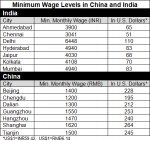According to Michelin - it's a regulatory obstacle:
[video=youtube;eGoPN-QSblk]http://www.youtube.com/watch?feature=player_embedded&v=eGoPN-QSblk[/video]
dwh,
Once again, I have to thank you. It's a concept vehicle, after all, so some of the drawings should feature "tweels". Or, the vehicle should be designed such that "tweels" could be easily attached in future. I will still calculate measurements in terms of XZL 14.00 and 16.00 R20 tires; but in some concept drawings, will use tweels.
Just one question: how do tweels do in sand? The miracle of beadlock pneumatic tires is that they can significantly deflate and thereby massively expand their available "footprint" on the ground, reducing average pressure per square cm on the sand. So I wonder whether tweels could be designed somehow to have similar capability? But if not, would it still make sense to use super-wide tweels, just for the 5 % of the time one might be driving over very soft sand?
But again, many thanks.
I owe you two.
*******************************************
As for American elites, I agree. But I did not want to say it here, not in this forum. Elites can be responsible or irresponsible, and as you suggest, in a large democracy they will not necessarily be "responsive" to voters' wishes.
Let me put the matter the following way. Here is the second video again about the German Mittelstand, in which Nicola Leibinger-Kammüller, President & Chairwoman of "
Trumpf", talks about how she hated the idea of laying off employees during a downturn:
Also see
http://en.wikipedia.org/wiki/Trumpf . The interview with Ms. Leibinger-Kammüller is about 5 minutes, 30 seconds into the video.
It turns out that she did not have to lay off any of her employees, because of a German program called "
Kurzarbeit" -- see
http://en.wikipedia.org/wiki/Short_time ,
http://www.rttnews.com/1296996/kurzarbeit-a-german-achievement.aspx ,
http://de.wikipedia.org/wiki/Kurzarbeit , and
http://translate.google.co.uk/translate?hl=en&sl=de&tl=en&u=http://de.wikipedia.org/wiki/Kurzarbeit . That, coupled with a good history of union/management relations, and union representation in corporate decision making or "co-determination", made it possible for Trumpf to reach an equitable agreement in which all employees accepted a small, temporary cut in total pay, about 5 %. Along with
much shorter working hours, with supplementary skills training off-site. For Germany's practice of co-determination, see
http://en.wikipedia.org/wiki/Co-determination . And because Trumpf was able to reach such a mutually beneficial agreement with its employees, when the recession ended and orders suddenly boomed, Trumpf was able to increase production by over 50 % in less than a year, something generally unheard of. Why? Well, because it still had all that labor on tap. So Trumpf cleaned up in a seller's market, once the economy turned.
This is very, very smart industrial policy. But it requires lots of actors to work in concert; it requires a long history of employee-management co-operation; and it requires lots of trust on all sides. It also requires complete transparency. Notice how following the interview with Nicola Leibinger-Kammüller, an ordinary employee states that everyone knew what the company's financial figures were, and how much trouble the company was in. Why did all of Trumpf's employees know this? Well, because of co-determination: mandatory works councils by law must fully participate in management decision-making, and they must have full access to the company's books. So even though Trumpf is a privately owned, family business, Trumpf cannot hide very much from its employees, and it cannot exploit them and take them for a ride.
Now there is no question that if elites are irresponsible and greedy, and if they feel no solidarity with employees, then such a system simply will not work. Elites will prevent the passage of laws mandating German-style works councils, for instance. But so too, employees have to be responsible "stakeholders" in the system.
Anyway, I cannot write here a sentence something to the effect,
"It was my general impression when I lived in the United States, that American elites have completely lost their sense of noblesse oblige, their sense of solidarity with employees whose labor is so critical to American economic success."
I've already said more than enough about the difference between
LME (liberal market economy) versus
CME (collaborative market economy) countries on page 43, in posts #429 and #430. So probably best to stop here.
In short, my apologies if it seemed like I was generalizing. My apologies if it seemed like I was suggesting that all Americans are equally responsible for the direction that the United States has taken over the last 40 years. I
do not think anything of the sort. In fact, like you
dwh, I very much hold America's elites morally, politically, and economically responsible. But I did not want to get too specific. So what you read as a generalization, was actually me trying to be evasively vague and euphemistic.
No doubt I will get "fried" for stating so clearly what I just wrote....

Back to tires?
All best wishes,
Biotect


















